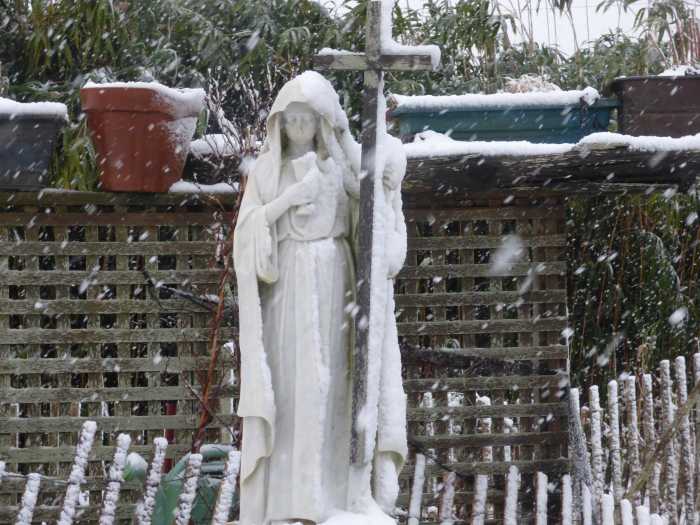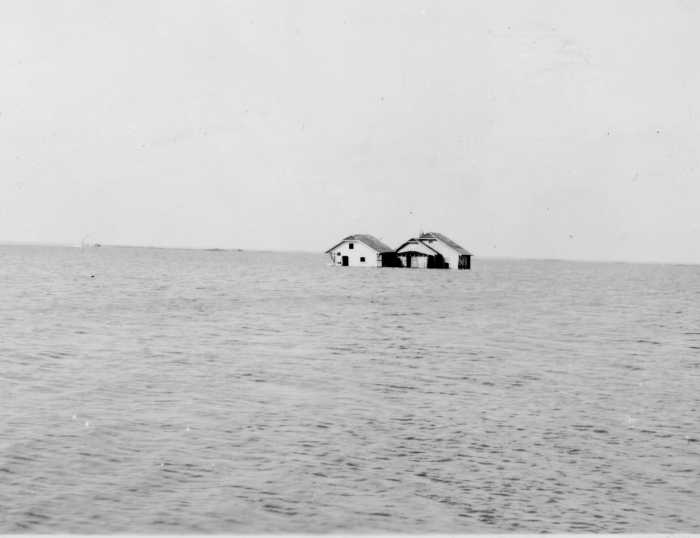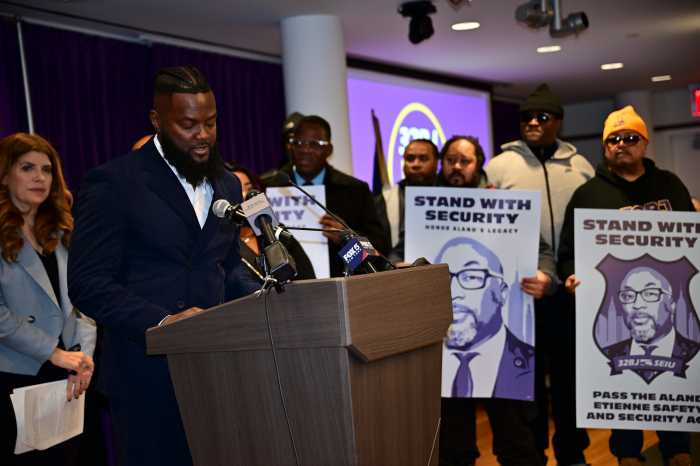On the morning of Saturday, July 12, Saltaire Village residents and officials gathered in the Village Hall to watch a presentation on the future of their water supply. Under consideration was a potential agreement for the Suffolk County Water Authority (SCWA) to take over water management responsibilities from the Village of Saltaire.
The presentation was given by Jeffrey W. Szabo and Joseph M. Pokorny, P.E., who serve respectively as the CEO and Deputy CEO for Operations of the SCWA. Szabo and Pokorny shared background information about themselves and the SCWA, explained the intricacies of the potential deal between their organization and Saltaire, and answered questions from meeting attendees.
The SCWA was described in their presentation as “an independent public-benefit corporation” that serves the potable water needs of “approximately 1.2 million Suffolk County residents,” on a non-profit basis, making it “one of the largest groundwater suppliers in the country.”
SCWA manages water for most of Suffolk County and Fire Island, including the neighboring communities of Kismet, Fair Harbor, Dunewood, and Atlantique. It is not part of the Suffolk County government, but the county legislature appoints its members to the board.
Under the proposed plan, the SCWA and Saltaire would enter into an “operating agreement” under which the village would lease its water infrastructure to SCWA for 40 years. Saltaire residents would become SCWA customers, with their water fees compensating the SCWA and helping to fund the necessary capital improvements.
Saltaire Village would retain ownership of the water system under the plan.
Pokorny emphasized this fact by saying, “It’s an operating agreement, it’s not a purchase.” The SCWA would assume all costs and responsibilities associated with running the system.
The plan also requires that the Saltaire water system be brought into equivalence with the rest of the SCWA’s system and into compliance with relevant regulations. Pokorny praised the overall quality of Saltaire’s existing infrastructure, calling it “well kept” and saying facilities are “in a nice state of repair.” Still, he emphasized the need to install 438 water meters to remain in compliance with New York State Department of Environmental Conservation (NYSDEC) regulations.
The installation of these water meters is estimated to cost $700,800, and connecting the Saltaire system to SCWA’s control center in Bay Shore will incur an additional $100,000. Saltaire residents would pay for the initial $800,800 in improvements through their water bills.
However, any improvements needed beyond these that emerge, along with all repair and operating costs, would be covered by SCWA moving forward. Saltaire would only need to reimburse SCWA for capital improvement costs if the village decided to exit its agreement “prior to complete depreciation of such capital improvement,” as stated in the presentation.
The presentation also stated that SCWA has developed similar operating agreement arrangements with various other municipalities and water districts across Suffolk in the past, including in Brentwood, East Farmingdale, and even with Fair Harbor, which is located east of the incorporated village.
The presentation also highlighted other strengths of the SCWA and the proposed agreement. Szabo highlighted that the SCWA adheres to even higher water quality standards than required by state and federal regulations. He stated that the SCWA tests for 400 compounds, which is 251 more than required by regulators, and that the organization tests its water at a higher frequency than is required by Suffolk County. Szabo also claimed the organization offers some of the lowest water rates in the country and has some of the highest bond ratings in the state, with two AAA bond ratings. Szabo and Pokorny both showcased SCWA’s in-house laboratory and its purported excellent customer service resources. Saltaire would benefit from all these things if the village were to join up with the SCWA through this agreement.
Saltaire joining the SCWA water system would also allow the body’s infrastructure to operate continuously from Kismet to Atlantique. Unifying the systems would increase efficiency and redundancy, making the overall water system serving the western Fire Island communities more resilient and reliable, according to the SCWA officials.
The presentation also highlighted the resources that the SCWA has on Fire Island, including round-the-clock emergency response times, three operators ready to assist customers, a dedicated construction crew, and stored spare materials on the island prepared for use in repairs.
Still, the most tempting benefit is that the SCWA will assume all future liability for any capital improvements that may arise in the future. Under this agreement, Saltaire residents will not have to pay for the repair and maintenance of their water infrastructure through village taxes if and when an expensive component of their water system starts to deteriorate.
Members of the public also had the opportunity to ask questions both during the presentation and a question-and-answer session. Participants discussed topics including homeowners’ ability to turn their water on and off seasonally, water bill rates, emergency repairs, capital improvements, integration into the SCWA system, contaminant testing, village tax rates, PFAS regulations, and water fluoridation.
It is currently unclear whether Saltaire will decide to transfer control of its water system to the SCWA. The Board of Trustees is set to discuss this further at their next meeting on Saturday, August 2.
If you missed their last meeting, you can still watch the SCWA presentation and its associated question-and-answer session on the Village of Saltaire website.































